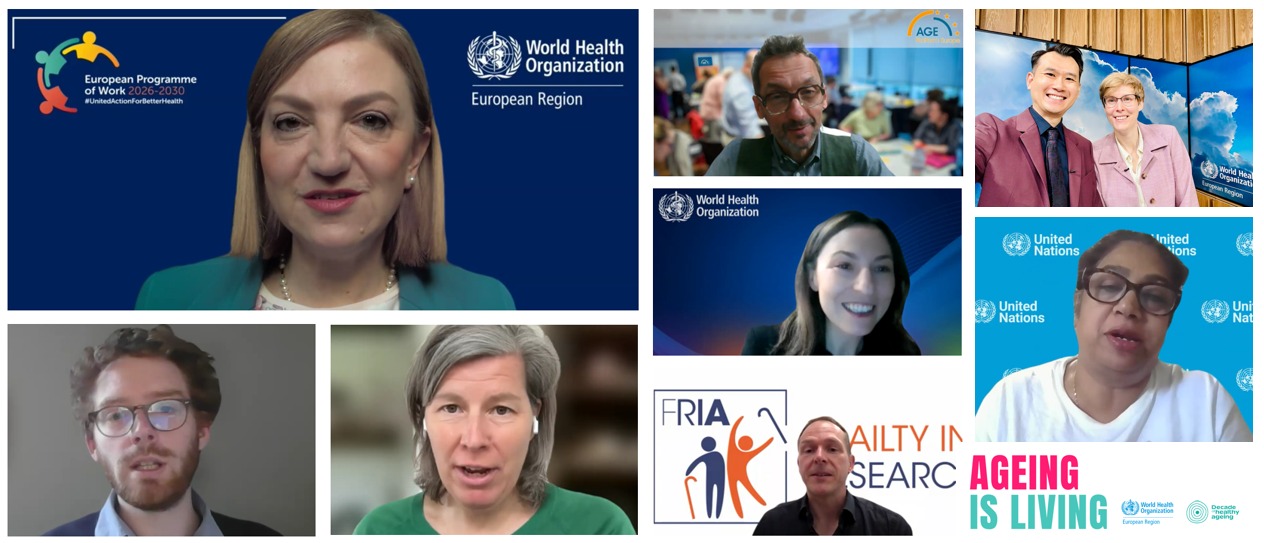More than 170 participants representing civil society, youth networks and non-State actors from across the WHO European Region and beyond joined a dynamic online stakeholder engagement to shape the forthcoming WHO European Strategy on Ageing is Living: Promoting a Lifetime of Health and Well-being (2026–2030). The event elevated local perspectives and spotlighted action from the ground up in response to urgent demographic, social and health shifts in the Region.

The stakeholder engagement was moderated by Svenja Herrmann, Team Lead on Partnerships, and Yongjie Yon, Technical Officer on Ageing and Health, from WHO/Europe.
Natasha Azzopardi Muscat, Director of the Division of Country Health Policies and Systems, opened the session by highlighting the need for action: “Too many people in our Region are living longer but not in good health. That is not an inevitability – it is a policy choice.” She emphasized the importance of engaging those working closest to people’s daily lives.
Ivan Bautmans from Vrije Universiteit Brussel delivered the keynote address, underlining that healthy ageing must focus on preserving intrinsic capacity and functional ability, not simply managing disease.
A lightning panel featured leading voices in the field. Maciej Kucharczyk, Secretary General of AGE Platform Europe, called for a fundamental shift in how societies engage with older people: “Older persons should not be passive recipients or paternalistically ‘included’. We must be seen as co-creators of society. Real engagement means giving older adults agency, voice and power – not as an act of charity, but as recognition of their enduring role in shaping our shared future.”
Erica Bol, Foresight Policy Officer at the European Commission, stressed the value of future-oriented, inclusive policy-making based on demographic intelligence.
Martin Lichte from the European Social Network drew attention to the need for investment in local and community-based care models and better support for informal carers.
Chitralekha Massey, Chief of the Rights of Older Persons Unit at the Office of the United Nations High Commissioner for Human Rights, emphasized the role of rights-based approaches in ensuring older adults are protected, respected and included.
Participants then joined breakout discussions to explore how the Strategy can reflect real-world challenges and solutions. Priorities included shifting from reactive to preventive approaches through investment in home-based support, early screening, rehabilitation, fall prevention and age-friendly spaces.
Discussions also emphasized the urgency of strengthening long-term care systems by making them more accessible, community-based and people-centred, particularly in rural areas. Participants called for better cross-sector coordination, stronger support for caregivers and the use of digital tools to enhance access.
They also noted that tackling ageism – especially in public services, media and policy-making – is essential to recognizing older adults as contributors to society. A recurring message was the need for structural change, backed by political will and cultural shifts, to ensure people of all ages can live and age with dignity, autonomy and purpose.
Yongjie Yon closed the session by reflecting on the broader imperative: “We are at a turning point. If we don’t act now, we risk leaving more people behind. This Strategy is about ensuring everyone – at every age – can thrive with dignity, purpose and connection.”




